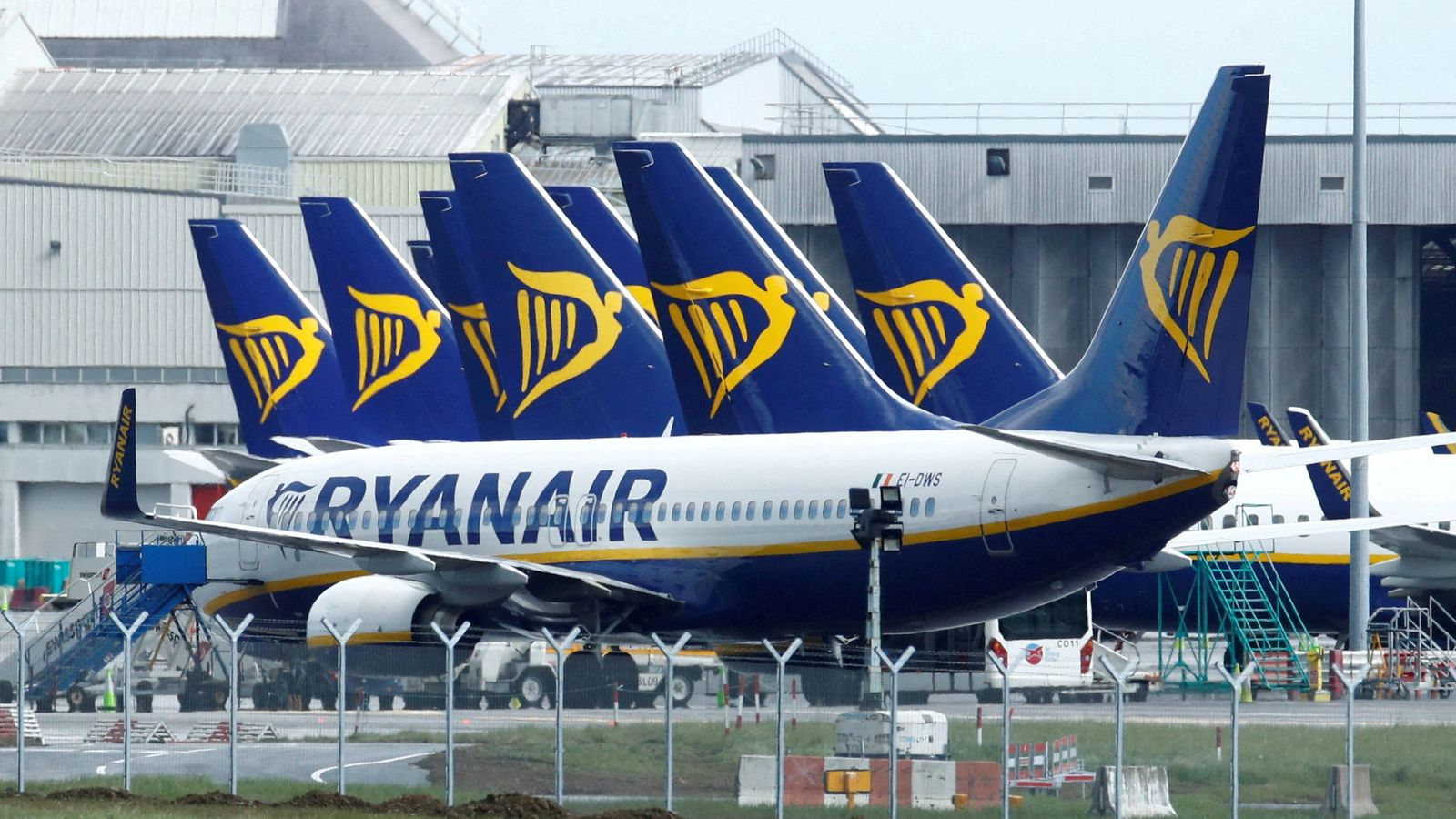Ryanair rebounds to near-record profit as fares rise

Ryanair has bounced back to a near-record profit fuelled by a record number of passengers.
Profits reached €1.4bn (£1.2bn) for the 12 months to 31 March, close to the record €1.45bn (£1.26bn) made in the year up to 31 March 2018, while fares increased by 10% compared to pre-pandemic levels, the company said in its full-year results.
The budget airline carried 168.6 million passengers over the year up to 31 March, surpassing the previous 149 million record before the COVID-19 pandemic.
The number, Ryanair hopes, will be surpassed this financial year and rise 10% to 185 million.
Bookings for the summer season are strong, the company said, and it will operate its largest ever schedule with nearly 2,500 routes and more than 3,000 daily flights.
However, passenger targets may not be reached due to delays in receiving new Boeing aircraft, the company said. It could be short by up to 10 new jets in the peak June and July months.
Ryanair has planned a programme of passenger increases.
It aims to grow traffic to 225 million a year by the end of its 2026 financial year and 300 million by the end of 2034, creating more than 10,000 new jobs for pilots, cabin crew, and engineers.
Read more:
Government sells £1.2bn of Natwest shares
The soaring costs of going to a wedding revealed
Advertisement
As part of this, the largest ever US order by an Irish company was signed earlier this month when Ryanair agreed to buy 300 new planes from Boeing for $40bn (£31.7bn) to further boost growth.
There are no signs inflation is hitting demand as people see travel as key in summer, Ryanair’s chief financial officer said and passengers are staying on holiday an extra day and working remotely, which is opening up a new market.
Customers see travel “not as a luxury but as an essential and families are returning to the beaches of Europe this summer,” chief executive Michael O’Leary said on an investor call on Monday.
Despite increased demand, capacity for short haul air travel in Europe has not recovered to 2019 levels, Ryanair said, as European airlines were battered by the pandemic era and some, such as Flybe, went bust. The airline is primed to capitalise on this demand, it said.